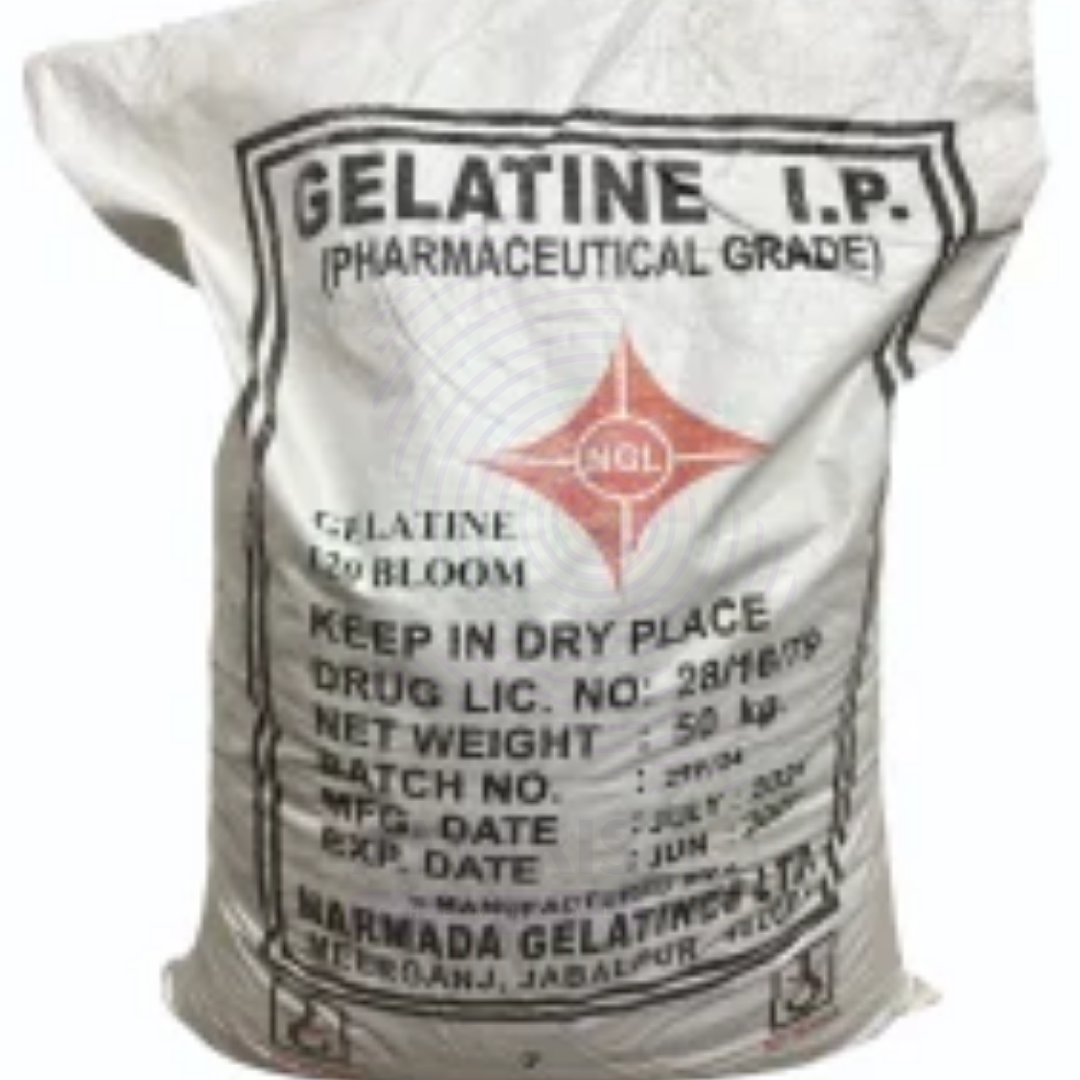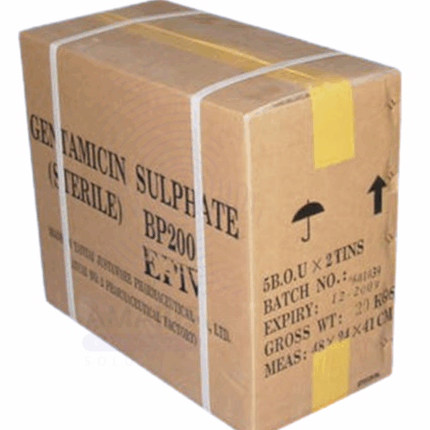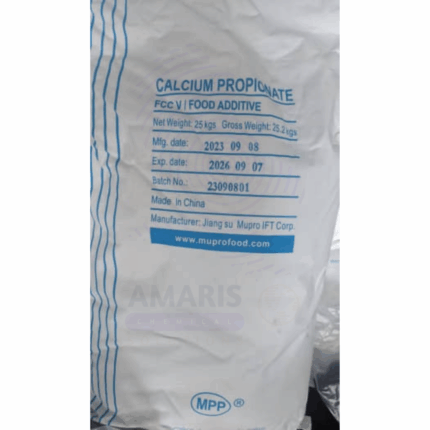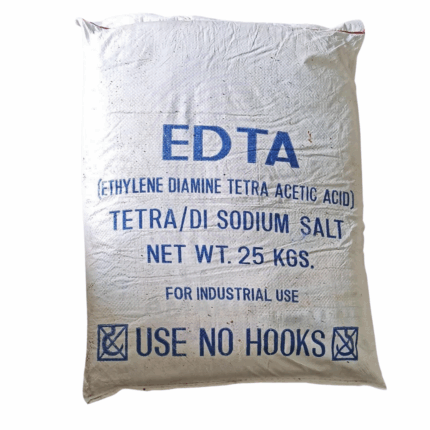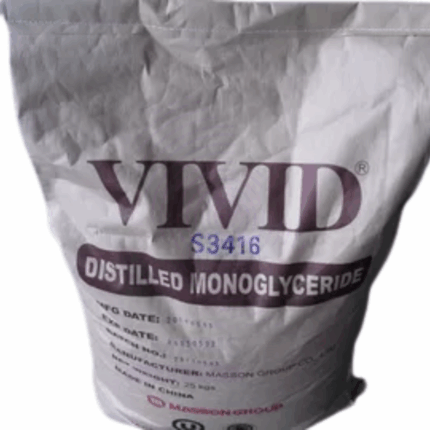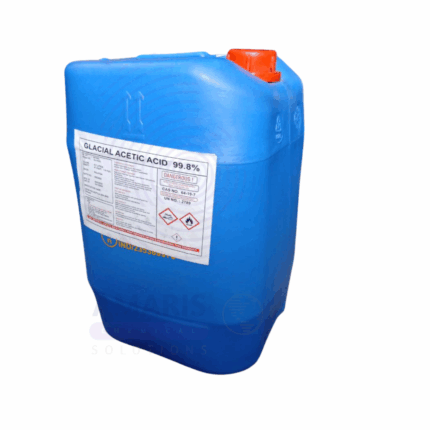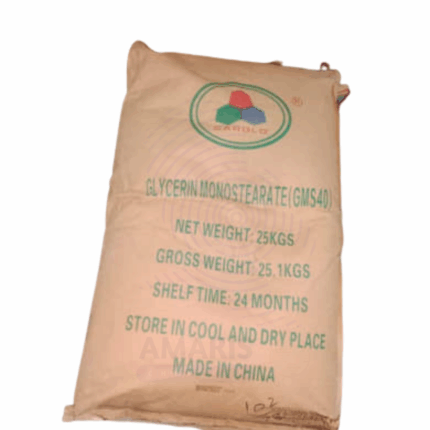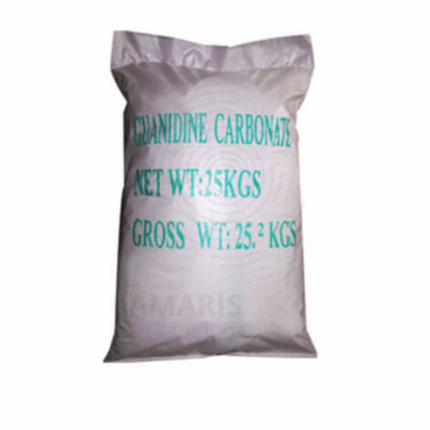“Glycerin Drum Food Grade” has been added to your cart. View cart
Gelatin Powder 180 Bloom
Whatsapp Order
Gelatin Powder 180 Bloom is a high-quality, partially hydrolyzed collagen protein derived primarily from the skin, bones, and connective tissues of animals such as pigs and cows. The “180 Bloom” rating indicates its gel strength, meaning it forms a firm gel, making it suitable for various industrial, food, pharmaceutical, and cosmetic applications. Gelatin is a natural biopolymer, pale yellow to off-white in color, odorless, and tasteless. It is widely used due to its excellent gelling, film-forming, emulsifying, and stabilizing properties. The powder form offers ease of handling, storage, and precise dosing.
Description
Table of Contents
Toggle
Gelatin Powder 180 Bloom
Primary Uses
- Food Industry
- Used as a gelling agent in desserts such as jellies, gummy candies, marshmallows, and panna cotta.
- Functions as a stabilizer and thickener in dairy products like yogurt, ice cream, and cream cheese to improve texture and mouthfeel.
- Acts as a clarifying agent in beverages including beer, wine, and juices.
- Utilized in meat products (sausages, ham) to improve texture, moisture retention, and sliceability.
- Serves as a film-former in edible coatings to prolong shelf life of fruits and vegetables.
- Pharmaceutical Industry
- Used extensively in the manufacture of hard and soft gelatin capsules for drug delivery.
- Employed as a binder and coating agent in tablet formulations.
- Used in plasma expanders and wound dressings due to biocompatibility and biodegradability.
- Cosmetic and Personal Care Industry
- Functions as a thickener, film-former, and moisturizer in creams, lotions, face masks, and hair care products.
- Used in collagen-based skincare products for its skin-firming and hydration benefits.
- Industrial Applications
- Employed in photographic films and papers as a binding and coating agent.
- Used in the production of gelatin-based adhesives and sizing agents in the paper and textile industries.
Secondary Uses
- Biomedical Research
- Used as a substrate for cell culture and tissue engineering scaffolds due to its biocompatibility.
- Utilized in the production of biodegradable microspheres and drug delivery systems.
- Printing and Packaging
- Functions as a binding agent in specialty inks and coatings.
PRODUCT KEY FEATURES
- Basic Identification Attributes
- Chemical Name: Gelatin (partially hydrolyzed collagen protein)
- Common/Trade Name: Gelatin Powder 180 Bloom
- CAS Number: 9000-70-8
- HS Code: 3503.00
- Molecular Formula: Protein polymer (complex)
- Synonyms: Gelatin Type A, Hydrolyzed collagen, Animal gelatin
- Physical & Chemical Properties
- Physical State: Fine powder
- Color & Odor: Pale yellow to off-white; virtually odorless
- Bloom Strength: 180 (high gel strength)
- Solubility: Soluble in hot water; insoluble in cold water
- pH: Typically 4.5–6.5 in aqueous solution
- Melting Point: Gel melts at ~35 °C (body temperature gelation)
- Viscosity: Moderate viscosity solutions depending on concentration and Bloom number
- Safety & Hazard Attributes
- Hazard Class (GHS): Generally regarded as safe (GRAS) for food and pharmaceutical use
- Toxicity: Non-toxic and biodegradable
- Exposure Limits: No specific occupational limits; standard food-grade hygiene recommended
- Storage & Handling Attributes
- Storage Conditions: Store in a cool, dry, and well-ventilated area, protected from moisture and contaminants
- Container Type: Food-grade sealed bags or containers
- Shelf Life: 24–36 months when stored properly
- Handling Precautions: Avoid dust generation and moisture exposure to prevent caking
- Regulatory & Compliance Attributes
- Approved by FDA, EFSA, and other regulatory bodies for food, pharmaceutical, and cosmetic applications
- Complies with USP/NF standards where applicable
- Environmental & Health Impact
- Biodegradability: Readily biodegradable and environmentally friendly
- Ecotoxicity: Low toxicity to aquatic organisms
- Bioaccumulation: Not expected to bioaccumulate
- Carcinogenicity/Mutagenicity: Not classified; safe for human use
SAFETY HANDLING PRECAUTIONS
- Safety Handling Precautions
- PPE Required: Dust mask, gloves, and eye protection recommended when handling large quantities
- Handling Guidelines: Minimize dust generation; use in well-ventilated areas
- Storage Measures: Keep container sealed and dry; avoid contamination
- Hygiene Practices: Wash hands after handling; avoid inhalation of dust
- First Aid Measures
- Inhalation: Move to fresh air; seek medical attention if irritation develops
- Skin Contact: Wash skin with soap and water; seek medical advice if irritation occurs
- Eye Contact: Rinse eyes thoroughly with water for at least 15 minutes; consult a physician if irritation persists
- Ingestion: Generally recognized as safe; rinse mouth if discomfort occurs
- Firefighting Measures
- Fire Hazards: Combustible solid; dust may form explosive mixtures with air
- Extinguishing Media: Water spray, foam, dry chemical, carbon dioxide (CO₂)
- Special Precautions: Use proper dust control and avoid ignition sources
- Decomposition Products: Carbon oxides and nitrogen oxides on combustion
Related products
Calcium Propionate
Calcium Propionate is the calcium salt of propionic acid, appearing as a white, crystalline powder or granules with a slightly salty taste and low odor. It is highly soluble in water and used primarily as a food preservative and mold inhibitor. Calcium Propionate inhibits the growth of mold, bacteria, and fungi, making it especially valuable in baked goods, dairy products, and animal feed to extend shelf life and prevent spoilage. It also finds application in pharmaceuticals and cosmetics as a preservative and antimicrobial agent.
Cetomacrogol PEG1000 (Ginonic CSA 20)
Cetomacrogol PEG (Ginonic CSA) is a polyethylene glycol-based nonionic surfactant and emulsifier with an average molecular weight of approximately 1000 Da. It appears as a white to off-white waxy solid or flakes with a neutral odor. This high-quality grade is widely used in cosmetic, pharmaceutical, and personal care formulations due to its excellent emulsifying, solubilizing, and moisturizing properties. Cetomacrogol PEG1000 (Ginonic CSA 20) facilitates stable oil-in-water emulsions, improves product texture and skin feel, and enhances the bioavailability of active ingredients. Its hydrophilic nature and compatibility with a wide range of ingredients make it a versatile additive in creams, lotions, ointments, and topical gels.
Cetyl Alcohol 98% Flakes
Cetyl Alcohol Flakes is a high-purity fatty alcohol derived mainly from natural sources such as palm oil and coconut oil. Presented as white to off-white waxy flakes, this product contains at least 98% pure cetyl alcohol, ensuring consistent performance and quality. It is valued for its excellent emollient, thickening, and emulsifying properties and is widely used in personal care, pharmaceutical, and industrial formulations. The flake form facilitates easy handling, melting, and dosing in manufacturing processes. Cetyl Alcohol 98% Flakes contributes to the texture, stability, and moisturizing properties of various formulations, providing a non-greasy, smooth finish.
Disodium EDTA
Disodium EDTA (Ethylenediaminetetraacetic acid disodium salt) is a white, odorless, crystalline powder known for its strong chelating properties. With a purity of 99%, it is widely used across numerous industries to bind metal ions, improve stability, and enhance performance in formulations. Disodium EDTA is highly soluble in water, slightly acidic to neutral in solution, and stable under standard storage conditions. Its ability to sequester metal ions like calcium, magnesium, and iron makes it a critical additive in food, pharmaceuticals, cosmetics, water treatment, and industrial applications.
Distilled Monoglycerides Remosoft
Distilled Monoglycerides Remosoft are purified monoglycerides derived from the glycerolysis of edible fats and oils, followed by a distillation process that removes impurities and enhances purity. They are colorless to pale yellow, odorless, and possess excellent emulsifying properties. DMG is widely used in food, pharmaceutical, and cosmetic industries due to its surface-active properties, ability to stabilize emulsions, and function as an anti-caking and lubricating agent. The distilled grade ensures high purity and low free fatty acid content, making it suitable for sensitive applications.
Glacial Acetic Acid Food Grade
Glacial Acetic Acid Food Grade is a clear, colorless liquid organic compound with a pungent vinegar-like odor. It is a high-purity form of acetic acid specifically produced and processed for safe use in food applications. As the main component of vinegar (after dilution), it serves as a critical flavoring agent, pH adjuster, and preservative in the food industry. Food-grade acetic acid typically has a concentration of 80-100% (glacial acetic acid) or is diluted to lower concentrations (4-20%) for specific applications.
Glycerol Monostearate Powder
Glycerol Monostearate Powder is a white to off-white, free-flowing powder composed of 50% monoglycerides of stearic and palmitic acids, typically derived from vegetable oils. It is a non-ionic emulsifier widely used in food, cosmetics, pharmaceuticals, plastics, and industrial applications. GMS functions as an emulsifying agent, stabilizer, thickener, anti-staling agent, and opacifier. In food, it improves texture and extends shelf life. In cosmetics and pharmaceuticals, it enhances creaminess and stability. GMS 50% is often blended with other emulsifiers or surfactants and is valued for its versatile functionality, safety, and compatibility with a wide range of ingredients.
Guanidine Carbonate
Guanidine Carbonate is a white crystalline powder, highly soluble in water, with strong basicity and high nitrogen content. It’s a versatile chemical intermediate widely used in pharmaceuticals, agriculture, polymer chemistry, textiles, and laboratory research. Its buffering properties and reactivity make it valuable in synthesis, pH regulation, and as a nitrogen source.


 Acidulants
Acidulants Antioxidants
Antioxidants Nutraceutical Ingredients (food)
Nutraceutical Ingredients (food)
 Collectors
Collectors Dust Suppressants
Dust Suppressants Explosives and Blasting Agents
Explosives and Blasting Agents Flocculants and Coagulants
Flocculants and Coagulants Frothers
Frothers Leaching Agents
Leaching Agents pH Modifiers
pH Modifiers Precious Metal Extraction Agents
Precious Metal Extraction Agents
 Antioxidants(plastic)
Antioxidants(plastic) Colorants (Pigments, Dyes)
Colorants (Pigments, Dyes) Fillers and Reinforcements
Fillers and Reinforcements Flame Retardants
Flame Retardants Monomers
Monomers Plasticizers
Plasticizers Polymerization Initiators
Polymerization Initiators Stabilizers (UV, Heat)
Stabilizers (UV, Heat)
 Antifoaming Agents
Antifoaming Agents Chelating Agents
Chelating Agents Coagulants and Flocculants
Coagulants and Flocculants Corrosion Inhibitors
Corrosion Inhibitors Disinfectants and Biocides
Disinfectants and Biocides Oxidizing Agents
Oxidizing Agents pH Adjusters
pH Adjusters Scale Inhibitors( water)
Scale Inhibitors( water)
 Antioxidants(cosmetic)
Antioxidants(cosmetic) Emollients
Emollients Fragrances and Essential Oils
Fragrances and Essential Oils Humectants
Humectants Preservatives
Preservatives Surfactants(cosmetic)
Surfactants(cosmetic) Thickeners
Thickeners UV Filters
UV Filters
 Fertilizers
Fertilizers Soil Conditioners
Soil Conditioners Plant Growth Regulators
Plant Growth Regulators Animal Feed Additives
Animal Feed Additives Biostimulants
Biostimulants Pesticides (Herbicides, Insecticides, Fungicides)
Pesticides (Herbicides, Insecticides, Fungicides)
 Active Pharmaceutical Ingredients (APIs)
Active Pharmaceutical Ingredients (APIs) Excipients
Excipients Solvents(pharmaceutical)
Solvents(pharmaceutical) Antibiotics
Antibiotics Antiseptics and Disinfectants
Antiseptics and Disinfectants Vaccine Adjuvants
Vaccine Adjuvants Nutraceutical Ingredients (pharmaceutical)
Nutraceutical Ingredients (pharmaceutical) Analgesics & Antipyretics
Analgesics & Antipyretics
 Analytical Reagents
Analytical Reagents Chromatography Chemicals
Chromatography Chemicals Spectroscopy Reagents
Spectroscopy Reagents Molecular Biology Reagents
Molecular Biology Reagents Biochemical Reagents
Biochemical Reagents Inorganic and Organic Standards
Inorganic and Organic Standards Laboratory Safety Chemicals
Laboratory Safety Chemicals Specialty Laboratory Chemicals(Special Laboratory Equipment)
Specialty Laboratory Chemicals(Special Laboratory Equipment)
 Demulsifiers
Demulsifiers Hydraulic Fracturing Fluids
Hydraulic Fracturing Fluids Scale Inhibitors(oil)
Scale Inhibitors(oil) Surfactants(oil)
Surfactants(oil) Drilling Fluids
Drilling Fluids
 Dyes and Pigments
Dyes and Pigments Bleaching Agents
Bleaching Agents Softening Agents
Softening Agents Finishing Agents
Finishing Agents Antistatic Agents
Antistatic Agents
 Admixtures
Admixtures Waterproofing Agents
Waterproofing Agents Sealants and Adhesives
Sealants and Adhesives Curing Compounds
Curing Compounds Concrete Repair Chemicals
Concrete Repair Chemicals Anti-Corrosion Coatings
Anti-Corrosion Coatings
 Surfactants(cleaning)
Surfactants(cleaning) Builders
Builders Enzymes
Enzymes Solvents (Cleaning)
Solvents (Cleaning) Fragrances
Fragrances
 Electronic Chemicals
Electronic Chemicals Catalysts
Catalysts Lubricants
Lubricants Photographic Chemicals
Photographic Chemicals Refrigerants
Refrigerants Automotive chemicals
Automotive chemicals Pyrotechnic Chemicals
Pyrotechnic Chemicals
 Biodegradable Surfactants
Biodegradable Surfactants Bio-based Solvents
Bio-based Solvents Renewable Polymers
Renewable Polymers Carbon Capture Chemicals
Carbon Capture Chemicals Wastewater Treatment Chemicals
Wastewater Treatment Chemicals
 Pigments
Pigments Solvents(paint)
Solvents(paint) Specialty Coatings
Specialty Coatings Binders/Resins
Binders/Resins Additives
Additives Driers
Driers Anti-Corrosion Agents
Anti-Corrosion Agents Functional Coatings
Functional Coatings Application-Specific Coatings
Application-Specific Coatings
 Fresh Herbs
Fresh Herbs Ground Spices
Ground Spices Whole Spices
Whole Spices Spice Blends
Spice Blends Dried Herbs
Dried Herbs
 Leavening Agents
Leavening Agents Dough Conditioners
Dough Conditioners Flour Treatments
Flour Treatments Fat Replacers
Fat Replacers Decoratives
Decoratives Preservatives(baking)
Preservatives(baking)
 Plasticizers & Softeners
Plasticizers & Softeners Reinforcing Agents
Reinforcing Agents Adhesion Promoters
Adhesion Promoters Vulcanizing Agents
Vulcanizing Agents Antidegradants
Antidegradants Blowing Agents
Blowing Agents Fillers & Extenders
Fillers & Extenders Accelerators & Retarders
Accelerators & Retarders